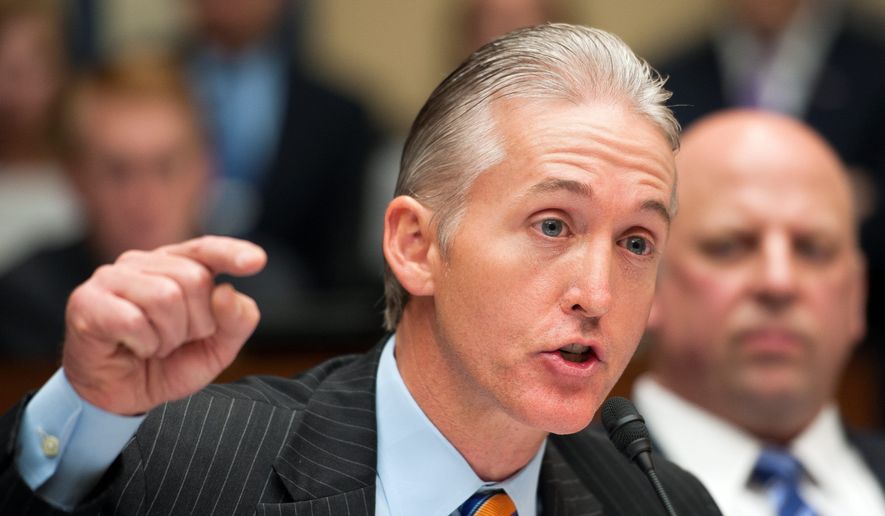A State Department official told Congress on Wednesday he agreed with the high-level decision to deny machine guns requested by U.S. diplomatic personnel in Benghazi, Libya, prior to the deadly terrorist attack, in testimony that led toward the office of former Secretary of State Hillary Rodham Clinton.
“Machine guns can be very menacing,” said Gregory Starr, assistant secretary for diplomatic security, in testimony before the House Select Committee on Benghazi.
That comment drew a withering response from Rep. Trey Gowdy, South Carolina Republican and chairman of the panel, who asked Mr. Starr if he had watched the video of the fiery 2012 attack that killed Ambassador J. Christopher Stevens and three other Americans.
“Do you at least see why somebody on the ground would have asked for that equipment?” Mr. Gowdy asked. “They wanted them [machine guns] for the rooftop.”
Mr. Starr said he had seen the video many times, and said “I think the [security] agents made the right decision at that point not to engage.”
The exchange came during the panel’s second hearing, with Mr. Gowdy vowing to produce a comprehensive account of the attack regardless of previous investigations.
Democrats on the panel said they were pleased that Mr. Gowdy agreed before the hearing to narrow the committee’s probe to avoid “unnecessary duplication of previous investigations.” A House Intelligence probe released Nov. 21 found no evidence of misconduct or lapses in the CIA’s handling of the attack and placed no blame on Mrs. Clinton.
But Mr. Gowdy seemed to have other ideas Wednesday, raising questions about which State Department officials denied Mr. Stevens’ requests for extra security guards and asking whether the U.S. personnel in Libya could have appealed the department’s denial of machine guns to higher-ups in the department.
Mr. Starr said embassy personnel can appeal decisions about security through a “dissent channel cable” that he said “goes to the highest level” of the State Department.
Mr. Gowdy also noted that Mr. Stevens sent a cable several months before the attack that was “a pretty plaintive pleading for some extra help.”
Charlene Lamb, who was in charge of the State Department office handling security requests, denied his request.
Noting that Ms. Lamb “is not likely to ever be the secretary of state for this country,” Mr. Gowdy asked Mr. Starr whether the ambassador could have taken his request higher in the department.
“The ambassador certainly did have the ability to go over her head,” Mr. Starr replied.
The hearing focused on the State Department’s implementation of safety recommendations made by the independent Accountability Review Board in the wake of Benghazi. Mr. Starr said the department has beefed up security at dozens of embassies.
“I have never seen security taken as seriously as it’s been taken in the last two years,” Mr. Starr said.
But committee members of both parties questioned some security shortcomings, including the failure of the State Department to carry out complete background checks of local security guards at U.S. embassies in several countries that don’t allow U.S. Marines or contractors to work there.
Mr. Starr said some nations, including Italy, have privacy laws that prevent the U.S. from fully vetting locals hired to provide embassy security.
“We’ve got to have guards,” Mr. Starr said. “We have take, at a certain point, some level of risk. We’ve never had a green-on-blue incident with any of our guards,” a reference to local contract-security forces who attack U.S. personnel.
• Dave Boyer can be reached at dboyer@washingtontimes.com.




Please read our comment policy before commenting.